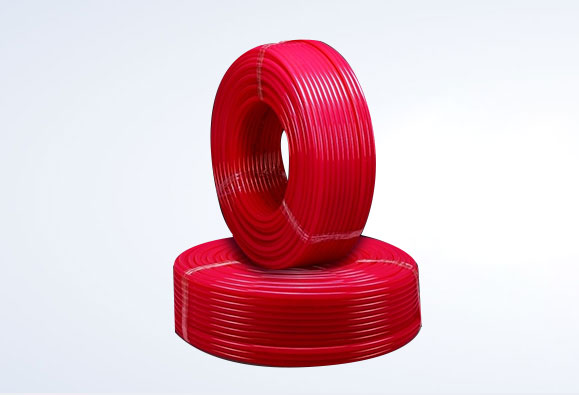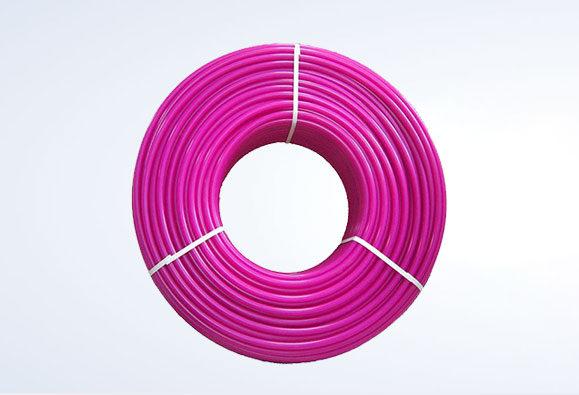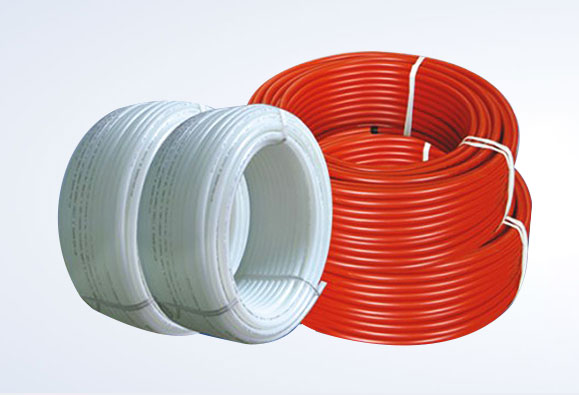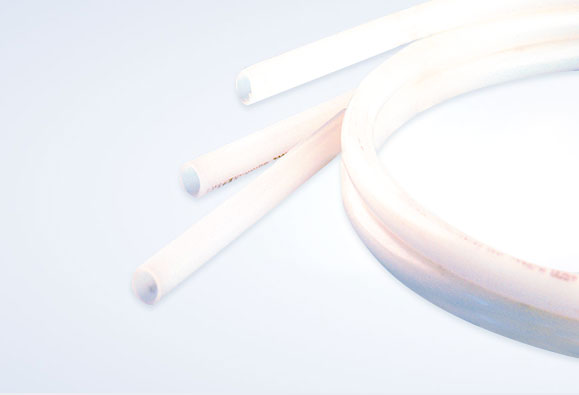Category:Building plumbing
Introduction:
Floor heating is a new, ideal heating way, in which low temperature hot water floor radiation heating is low temperature hot water as the heat medium, through the buried in the floor of the PE-RT heat-resistant conduit heating the floor, uniform to the indoor radiation heat. This is an energy-saving heating system that regulates the microclimate of the room. Floor heating not only saves indoor space, but more importantly, this technology can save more than 30% of building energy consumptionFloor heating is a new, ideal heating way, in which low temperature hot water floor radiation heating is low temperature hot water as the heat medium, through the buried in the floor of the PE-RT heat-resistant conduit heating the floor, uniform to the indoor radiation heat. This is an energy-saving heating system that regulates the microclimate of the room. Floor heating not only saves indoor space, but more importantly, this technology can save more than 30% of building energy consumption.
Pe-rt,Polyethylene of raised Temperature Resistance Pipes for floor radiant heating, suitable for heating purposes, The thermoplastic heating tube is extruded from PE-RT and PE-RT II as raw materials.
Product features:
1, light quality, has been with transportation, installation, construction
2, with good flexibility, the bending radius can be as small as 8 times the outer diameter of the pipe. Make its laying convenient and economic, the pipeline in the construction can be coiling and bending methods to reduce the key usage, reduce the construction cost
3. When the pipeline is bent, the stress in the bending part can be relaxed quickly, and there will be no "rebound" phenomenon, which is convenient for construction operation, so as to avoid the damage phenomenon caused by the stress concentration of the pipeline in the bending place in the process of use
4, tube friction loss is small, good hydraulic characteristics, enhanced fluid transport capacity
5. Low brittle cracking temperature. Pe-rt pipe has superior low temperature resistance, so in the case of low temperature in winter can also be palace, and in the bending pipeline is without preheating, which can solve the economic loss caused by the winter temperature in northern China is too low, unable to construction
6, chemical corrosion resistant model, no rust, long service life
7, with good environmental adaptability in the use of low temperature hot water ground radiation heating conditions, the pipeline can be used for 50 years
8, good impact resistance
9, good heat dissipation performance, thermal conductivity of 0.44W/m.K, in the heating application can save a lot of energy
Nominal outer diameter | S6.3 | S5 | S4 | S3.2 | S2.5 |
Wall thickness mm | Wall thickness mm | Wall thickness mm | Wall thickness mm | Wall thickness mm | |
12 |
|
|
|
| 2.0 |
16 |
|
| 2.0 | 2.2 | 2.7 |
20 |
| 2.0 | 2.3 | 2.8 | 3.4 |
25 | 2.0 | 2.3 | 2.8 | 3.5 | 4.2 |
32 | 2.4 | 2.9 | 3.6 | 4.4 | 5.4 |
40 | 3.0 | 3.7 | 4.5 | 5.5 | 6.7 |
50 | 3.7 | 4.6 | 5.6 | 6.9 | 8.3 |
63 | 4.7 | 5.8 | 7.1 | 8.6 | 10.5 |
75 | 5.6 | 6.8 | 8.4 | 10.3 | 12.5 |
90 | 6.7 | 8.2 | 10.1 | 12.3 | 15.0 |
110 | 8.1 | 10.0 | 12.3 | 15.1 | 18.3 |
125 | 9.2 | 11.4 | 14.0 | 17.1 | 20.8 |
140 | 10.3 | 12.7 | 15.7 | 19.2 | 23.3 |
160 | 11.8 | 14.6 | 17.9 | 21.9 | 26.6 |
1. The pipeline should meet the following conditions before construction and installation:
(1) Complete design and construction drawings and related technical documents.
(2), there is a relatively complete construction plan. The construction organization design has been completed, and the technical disclosure has been completed.
(3) The construction site has water supply and power supply conditions. There are temporary facilities for storing materials.
(4) The civil engineering major has completed the wall painting (excluding the surface layer), the exterior windows and exterior doors have been installed, and the ground has been cleaned, and the kitchen and bathroom should be tested for closed water and accepted.
(5) The relevant electrical pre-embedding and other projects have been completed.
2. The technical documents of all incoming materials and products should be complete, the signs should be clear, and the appearance inspection should be qualified. When necessary, samples should be taken for relevant testing.
3. Pipes should be transported after shading packaging, and should not be exposed in bulk; during transportation, loading and unloading, and handling, they should be handled with care, and should not be thrown, dropped, rolled, dragged; should not be exposed to the sun and rain, and should be stored in a well-ventilated place where the temperature does not exceed 40 °C. In a clean warehouse at ℃, the distance from the heat source should be kept at least 1m; damage due to ambient temperature and physical pressure should be avoided.
4. During the construction process, paint should be prevented. Bitumen or other chemical solvents come into contact with contaminated pipe surfaces.
5. The ambient temperature of construction should not be lower than 5°C. When constructing in an environment lower than 0°C, heating measures should be taken on site.
6. It is not suitable for cross-construction operations with other types of work during construction. All ground holes should be completed before filling layer construction.
7. During the construction of the floor heating project, it is strictly forbidden for personnel to step on the pipes.
8. After the construction is over. As-built drawings should be drawn, and pipe laying locations should be accurately marked. (2) Laying of thermal insulation layer:
1. The ground on which the thermal insulation layer is laid should be flat, dry and free of debris. The root of the wall should be straight and free of dust accumulation.
2. The thermal insulation layer should be laid flat and lapped tightly.
3. When coated with vacuum aluminized polyester film or glass cloth-based aluminum foil veneer layer. There shall be no damage other than the plastic staples securing the pipe to the insulation.
(3) Heating pipe and laying:
1. According to the requirements of the design drawings, the wiring and piping shall be carried out. The heating pipes of the same passage should be kept horizontal.
2. The bending radius of the heating pipe. The PE-RT pipe should not be less than 8 times the outer diameter of the pipe, and the maximum should not be greater than 11 times the outer diameter of the pipe.
3. The heating pipe in the filling layer should not have joints.
4. Use special tools to cut the pipe, the fracture should be flat, and the fracture surface should be perpendicular to the axis of the pipe.
5. The heating tube should be fixed, and the following fixing methods can be used respectively:
(1) Fix the heating tube directly on the heat insulating plate covered with the composite surface layer with the fixing clip. (2) Use cable ties to bind the heating pipe to the steel wire mesh covered with the composite surface layer. (3) It is stuck on the exclusive pipe frame or pipe clamp laid on the surface of the thermal insulation layer.
1. PE-RT floor heating pipes are suitable for heating of residences, villas, hotels, restaurants, office buildings, shopping malls, hospitals, theaters, libraries, exhibition halls, conference rooms, swimming pools, and entertainment venues.
2. It can be used in industrial fields such as greenhouses, flower houses, computer rooms, fish farms, livestock farms, airports, etc., as well as ground snow melting projects such as outdoor stations, parking lots, ramps, and outdoor sports.






 Wechat QR code
Wechat QR code
 Home
Home Tel
Tel Product
Product